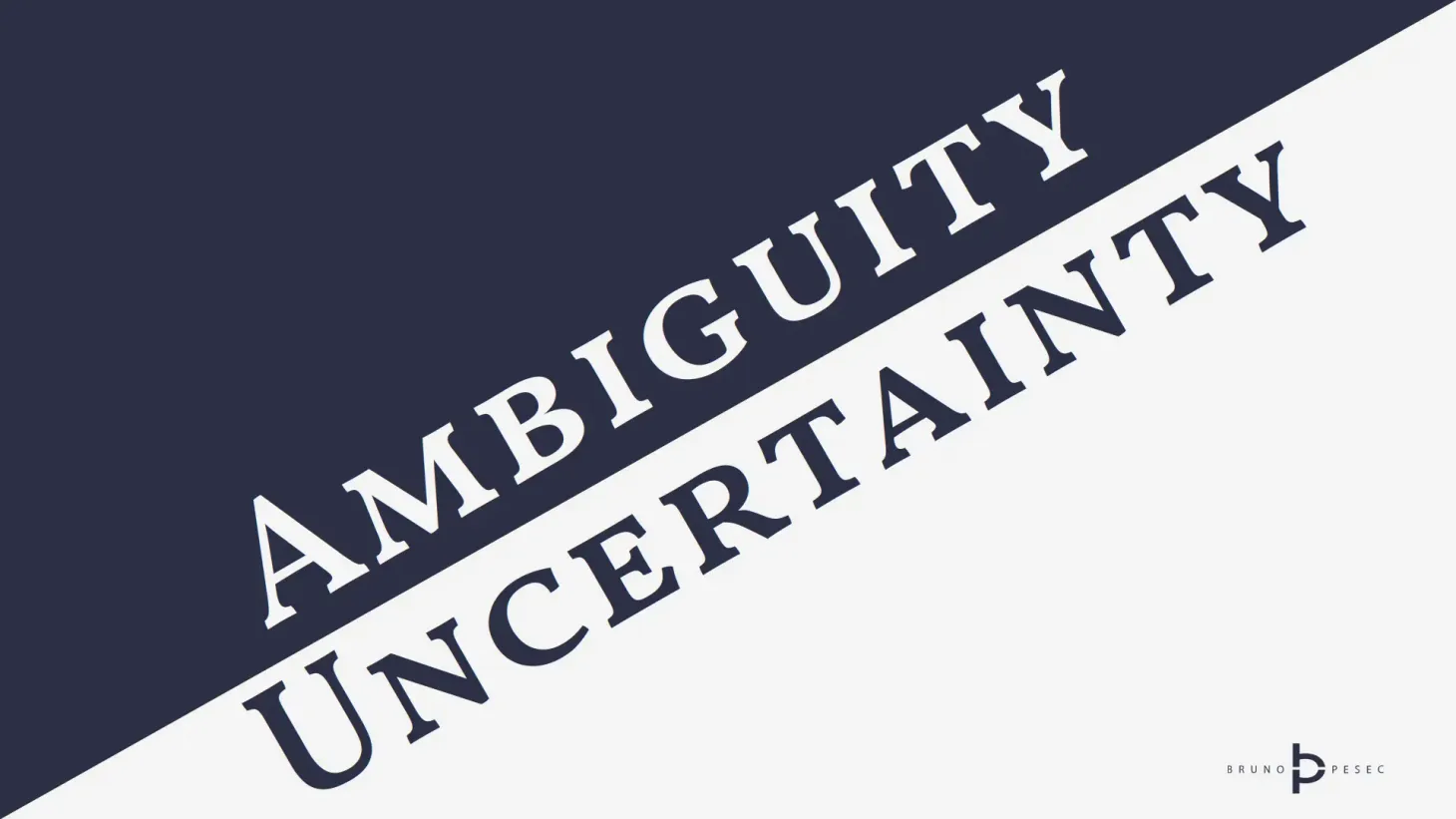Ambiguity vs uncertainty
Each demands a different approach.

Let’s consider the following two words: "ambiguity" and "uncertainty."
Ambiguity means that there are multiple interpretations of what has been said or done. Let’s take innovation as an example. Usually, if I ask ten people to define innovation, I will get twenty definitions back. Now if these were ten random people from the street then it wouldn't matter. But if these are ten people from the same organisation, same division, or even worse, same team, then that is a big red flag.
Lacking alignment on the meaning of key words will translate into extra work and waste. Ambiguity might have some advantages in politics, but why do that in business? Leaders can fix ambiguity by sheer authority of their position. They only need to be willing to.
Uncertainty, on the other hand, can only be reduced. We can try to learn more. Understand deeper. Imagine the future better. Think about possible options broader. Run experiments to test our hypotheses. We can do all these things—and we should—to increase our understanding and confidence while reducing uncertainty. At the same time, we should accept that sometimes it is impossible to become completely certain. After all, we cannot see the future. We learn as much as we can and then make a decision.
Allow me to recap.
Ambiguity should be ruthlessly eliminated else waste runs amok.
Uncertainty should be tirelessly reduced until decision can be made.
Bruno Unfiltered
Subscribe to get the latest posts delivered right to your inbox. No spam. Only Bruno.




